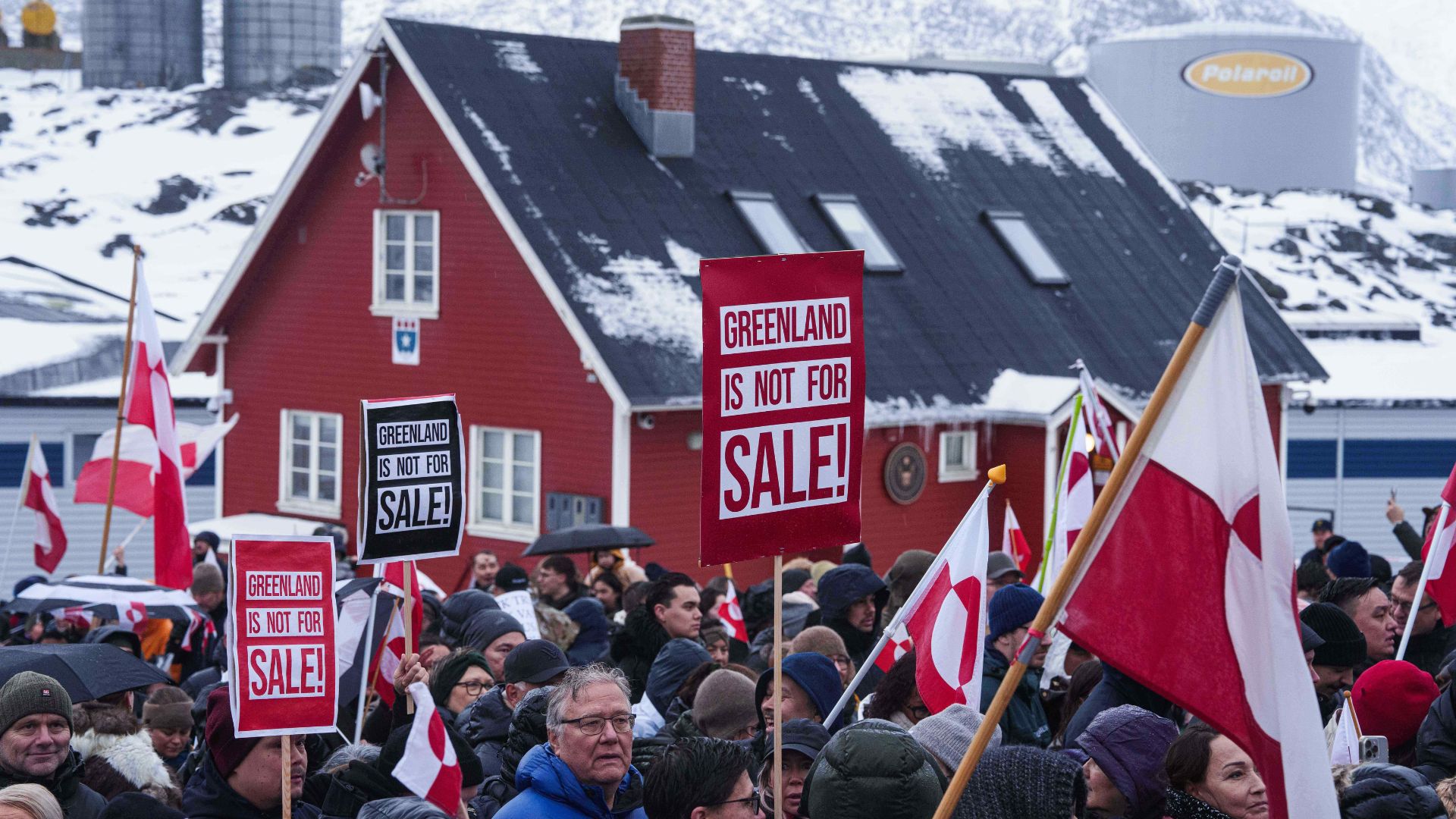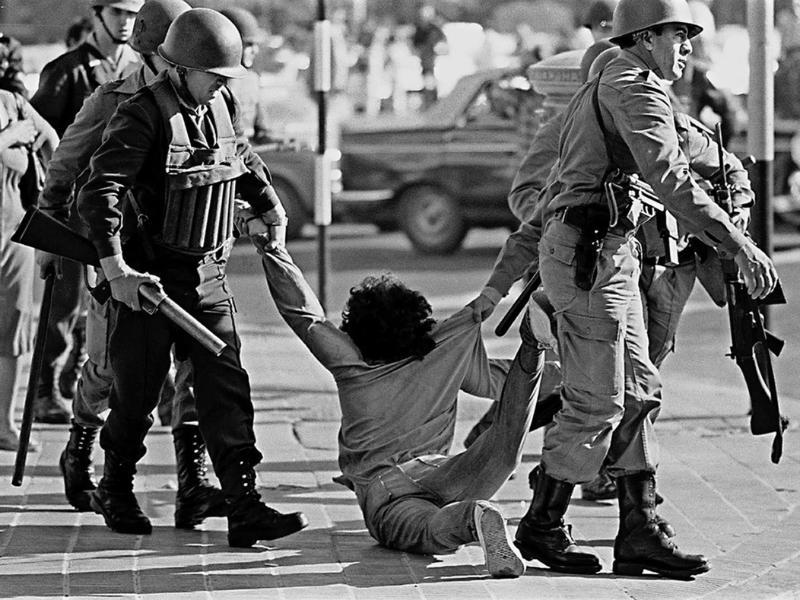Understanding the dispute
Contrary to the decision of the International Court of Justice, Venezuela held a referendum on December 3rd on the creation of a state in the territory that Venezuelans call Guayana Essequiba, currently under the sovereignty of Guyana (formerly British Guiana). The referendum’s decision came as no surprise. Venezuelans approved the five questions (see below) proposed by the Chavista government with a large majority.
- “Do you agree to reject by all means, in accordance with the law, the line fraudulently imposed by the Paris Arbitration Award of 1899, which aims to deprive us of our Guyana Essequiba?” – Approved with 97.83% of the vote
- “Do you support the Geneva Agreement of 1966 as the only valid legal instrument for reaching a practical and satisfactory solution for Venezuela and Guyana in the dispute over the territory of Guyana Essequiba?” – Approved with 98.11% of the vote
- “Do you agree with Venezuela’s historical position of not recognizing the Jurisdiction of the International Court of Justice to resolve the territorial dispute over Guyana Essequiba?” – Approved with 95.4% of the vote
- “Do you agree to oppose, by all means within the law, Guyana’s claim to unilaterally dispose of a sea whose delimitation is still pending, illegally and in violation of international law?” – Approved with 95.94% of the vote
- “Do you agree with the creation of the state of Guyana Essequiba and the development of an accelerated plan for the comprehensive care of the current and future populations of this territory, which includes, among other things, the granting of Venezuelan citizenship and identity cards, in accordance with the Geneva Agreement and international law, consequently incorporating said state into the map of Venezuelan territory?” – Approved with 95.93% of the vote
In a voting without international observers in a country with a recent history of contested elections, it is natural to be skeptical about these practically absolute approval figures. Although both the government and the opposition share the position on Venezuelan ownership of Essequibo, the referendum saw a low turnout. In addition, journalists covering the referendum reported empty polling stations, and the government itself extended voting hours.
It is not uncommon for authoritarian governments to seek to legitimize their actions around a foreign policy agenda. In this sense, it is clear that the Maduro government is seeking to create a ‘rally around the flag’ effect. Although it is unlikely that this crisis will escalate into an armed conflict, the Venezuelan president wants to be seen as the man who has gone in pursuit of what is considered internally to be a national right, thus increasing his popularity. He also seeks to legitimize Venezuela’s historic claim over the region, revitalizing the issue in the public debate – nationally and internationally. This objective has been successfully achieved.
Under pressure to hold free elections, which are due to take place next year following an agreement with the United States to suspend economic sanctions, Maduro is using the discourse that he is fighting against imperialism and for the will of the Venezuelan people as he seeks to remain in power. The dispute over this territory, however, is an old one, dating back to the colonial period. In 1811, when Venezuela declared itself independent from Spain, the declared territory included Essequibo. The territory was also part of the Captaincy General of Venezuela, founded by the Kingdom of Spain. Later, the frontier line of British Guiana went beyond the territory acquired from the Netherlands. This prompted a Venezuelan complaint, supported by the United States, to the international community. However, the Paris Arbitral Award of 1899 was in favor of the British crown. This ruling was not recognized by Venezuela, due to accusations that the judges were biased.
Guyana, for its part, would only become independent in 1966, when, in anticipation of this independence process, the United Kingdom signed the Geneva Agreement referred to by the Venezuelan government in the referendum questions. Through the agreement, it was established: “A Joint Commission will be created with the task of seeking satisfactory solutions for the practical settlement of the controversy between Venezuela and the United Kingdom which has arisen as a result of the Venezuelan claim that the Arbitral Award of 1899 on the boundary between British Guiana and Venezuela is null and void”.
Through good offices, subsequent attempts at negotiation were made. Without success, the 159,000-kilometer territory of Essequibo remains in dispute. Rich in gold and other minerals, as well as logging capacity, the discovery of oil in 2015 by the American company ExxonMobil off the coast of Essequibo has reinvigorated the dispute. The “black gold” of Essequibo justifies the Venezuelan dispute over the rights to exploit the territorial sea (12,000 nautical miles) and the Exclusive Economic Zone (EEZ), which is 200 nautical miles from the territorial sea and adjacent zones.
This is because Guyana has already authorized several private companies to exploit the oil resources off the Essequibo coast, reaching the milestone of being the country with the highest real growth in its Gross Domestic Product (GDP) in the world by 2022. Following the referendum, Maduro authorized the Venezuelan state-owned company PDVSA to grant licenses for oil and gas exploration in the region.
In addition, the president announced during the Federal Government Council: the change of Venezuelan school maps to include the territory of Essequibo; the creation of the state of Guayana Essequiba, with the granting of Venezuelan nationality to people living in the territory; the creation of the Comprehensive Defense Zone of Guyana Essequibo (Redi); the appointment of a single authority for the territory, General Alexis Rodríguez Cabello, whose political-administrative headquarters will be Tumeremo. In response, Guyanese President Irfaan Ali called in the UN Security Council (UNSC) over the issue.
Despite the tension, the referendum and the subsequent actions of the Venezuelan government do not necessarily indicate an annexation by force. On the other hand, there is a clear need for a clear message from the Brazilian government that an illegal use of force will not be tolerated. Especially in the Amazon region, which already attracts a great deal of international attention – and greed.
Brazil’s role as regional power
As the only country that shares borders with both countries, as well as being the largest country in South America, Brazil seems to have had an initial paralysis in expressing itself more clearly in the face of the crisis. Ambassador Gisela Padovan, secretary for Latin America and the Caribbean at the Brazilian Foreign Ministry, even said that the referendum was an internal matter for Venezuela. It has become clear, however, with the actions taken after the referendum by Maduro, that this is not the case.
Any regional crisis, especially one involving a territorial dispute on Brazil’s borders, is not simply an internal matter for Venezuela. An escalation in this crisis threatens not only regional stability, but also Brazil’s own territory. This is because any Venezuelan occupation of the Essequibo territory would need to pass through Brazilian territory, due to the terrain conditions (Amazon jungle). The only road connection – which would allow armored vehicles to pass through – between Venezuela and Guyana is through Brazilian territory. Furthermore, a military conflict could lead to forced displacement of people fleeing the war, causing a possible refugee crisis in Brazil.

In light of this, a firm Brazilian stance on the crisis is natural and expected. The Brazilian border has even been reinforced with 60 men, in addition to a contingent of 70 on the border at Pacaraima (RR). The modest number of 130 soldiers, however, is not enough to send a strong message to the Venezuelan government that annexation by force will not be tolerated. Later, the Brazilian government announced new reinforcements, as well as sending 20 armored vehicles to the region, which is more consistent with Brazil’s historical position of defending peace and delimiting borders peacefully.
Even so, Brazil’s position on Essequibo lacks a stronger deterrent element. Brazil stipulates in its National Defense Strategy (2020): “In all circumstances, military units located on the borders will function as advanced surveillance and deterrence detachments”. Deterrence, according to the Glossary of the Brazilian Armed Forces, is defined as: “A strategic attitude which, through means of any kind, including military means, aims to discourage or divert adversaries, real or potential, from possible or presumed warlike purposes.”
The need to apply this strategic attitude to the current crisis is therefore clear. Deterrence does not preclude opening and maintaining diplomatic channels. On the contrary, it supports peaceful negotiation by discouraging the use of force and showing readiness to respond. Furthermore, it is not in Brazil’s interest for extra-regional powers to occupy this space. An armed conflict could bring unwanted attention from the US and Russia, for example. That’s why the Guyanese president’s statement recognizing Brazil’s leadership in defending international law is favorable to a peaceful conclusion. Perhaps, as President Lula offered, a possible Brazilian mediation.
The unwanted attraction of other external powers to the Latin American subcontinent
Not without reason, South America fears external interference in the region. Venezuela is a highly securitized issue in the US, which indicates the risk of US intervention in the region in the event of a military confrontation. In this regard, the US Southern Command (SOUTHCOM) carried out a military air exercise with Guyana. In general, exercises like this serve precisely to signal strength and interoperability in the face of a crisis in order to discourage escalation. In a more uncertain perspective – and one that is more undesirable for Brazil – the Guyanese president chose to leave open the possibility of a US military base in Guyana, which would be in addition to the 76 bases already present in Latin America. The US military presence so close to Brazil’s borders naturally raises concerns for the Brazilian government, especially given the sensitivity of the Amazon territory.

On the other hand, Venezuela also has powerful allies. At the beginning of Russia’s invasion of Ukraine in February 2022, Maduro declared his full support for the invading country. In the words of the Venezuelan president: “Venezuela is with Putin, it is with Russia, it is with the brave and just causes of the world, and we are going to ally ourselves more and more.” Maduro is due to visit Russia later this year.
Although unlikely, the option of using force exposes Venezuela to even greater damage to its economy, which would be hit by new economic sanctions. It also risks alienating neighbors who would otherwise maintain friendly relations, such as Brazil. Finally, such a misadventure could cost Maduro the very presidency he wants to keep.
Fontes
https://www.gazetadopovo.com.br/mundo/venezuela-e-guiana-comemoram-decisao-da-cij-sobre-essequibo/
https://legal.un.org/riaa/cases/vol_XXVIII/331-340.pdf
https://treaties.un.org/doc/publication/unts/volume%20561/volume-561-i-8192-english.pdf
https://bibliotecadigital.economia.gov.br/handle/123456789/459
https://www.bbc.com/portuguese/articles/c6pr237d1g7o
https://pt.euronews.com/2022/02/23/nicolas-maduro-declara-apoio-total-da-venezuela-a-russia



